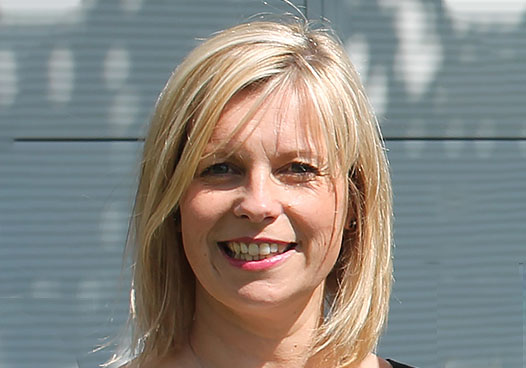As I write this, we have now been in lockdown for 3 months and this morning I received an e mail from LinkedIn Learning and Development telling me that employees are spending 130% more time learning than in normal times. As we work from home or indeed, are furloughed, we’re searching for content and chances are that this has been served up virtually, whether in the form of a webinar, conference, or some other form of streamed event.
I’m no different and have done exactly the same, but last week was a new experience for me as I
co -hosted a Conference Care virtual event with my colleague Pauline Beattie and in partnership with Curium Solutions, a leading Midlands based organisational change company.
The behind-the-scenes experience for a virtual event is very different to simply being a speaker at a conference and gives rise to the title of the article. Based on last week, event management when running a virtual event, is an absolutely essential component to providing support needed to event planners to ensure successful delivery of the event.
Let me give you a little background. We’ve been working on our virtual solutions since the start of lockdown and felt we were in a position to showcase this capability with some of our key customers. We also wanted to create a self-development opportunity for customers, and this is where Curium came in as they were going to run a Tetramap taster session (a learning model for individuals and businesses).
Things to consider pre-event
Registration process – We had 47 delegates register for the event. The process was smooth and straightforward. We also recognised that not every delegate is completely comfortable with technology, so we created a user guide and an instant help button for live questions and support on the day.
Joining instructions – ensure they are sent out well in advance and encourage delegates to have a play with the virtual platform (providing you make aspects of it live before the event of course).
Content – Content becomes much more important when hosting a virtual event. When inviting guests, content is what will drive registration and engagement. In a live event scenario, a delegate’s decision to attend or not may be guided by the lure of a lovely 5-star hotel or the prospect of a great lunch. You don’t have this luxury with a virtual event. The most important consideration is whether that content is of interest to the delegate.
Consistently strong content also becomes more important than ever during a virtual event as delegates minds will undoubtably be distracted by e mails, their mobile phones, children and pets, so keeping them engaged will be vital.
Objectives – We had 2 clear objectives for the event. Showcase our virtual capability and give our customers a self-development opportunity. Again, it’s really important to have clarity around this when planning a virtual event.
In the lead up to the event
This is where for me; Event Management is so crucial. Think for a minute about the complexity of organising a virtual event. As the event planner, you are responsible for the event but in a live event scenario, you are likely to have somebody from the venue as your operational point of contact working behind the scenes on your behalf. In a virtual event situation, you might not have considered adding event management and instead you, as the event planner, may have a technology provider creating your platform and online presence and then an AV company pulling together sound, image and production. One proposal we are working on at the moment would potentially have speakers in studios in 7 different locations. On top of this, you have to co-ordinate speakers and transition content and what if, heaven forbid, technology or your internet supply fails.
A professional event planner wants to concentrate on ensuring their event is a success. What happens behind the scenes is where to me, having witnessed it firsthand, the Event Manager really earns their fees by acting as that buffer and taking the stress away from the event planner.
During the Event
From my experience last week, I would call out rehearsals and contingency planning as the 2 key learnings.
Firstly, rehearsals. Investing time in speaker rehearsal and becoming familiar with the technology is vital. Our event was Thursday and we rehearsed Tuesday, Wednesday and Thursday morning (and there were only 3 speakers). Like any physical event there are still aspects that I would want to improve on as I reflect on the event, but safe to say most of my thoughts are already being developed and tested by our technology partner as I write this.
Rehearsing transitions, camera angles and even considering what’s in your background are small but extremely important considerations when it’s just you to camera.
On then to contingency planning. As a child of the 70’s I was a keen viewer of Blue Peter and remember the old adage of never working live with children and animals. This was particularly highlighted by the famous clip of the young elephant pooing all over the studio! I’d add technology to the children and animals list! If you are preparing to broadcast live, clearly, it’s a risk and one that you have to be prepared for.
As part of our event, we were splitting the group into 4 syndicate rooms. We’d received the links for each room in the morning, had tested them all worked fine. Come the event, the links became corrupted meaning that the moderators couldn’t join the delegates in their workshops. Whilst most delegates in the syndicates were able to talk through their discussion points themselves, from our perspective we felt a little disconnected from what was happening.
The learning for me is – don’t just plan for the best and worst – you need to plan for all possible eventualities, both large and small consequences and be prepared to have additional content available should you need it.
Post Event
Delegate Survey – We wanted instant feedback so as part of the closing session, directed delegates to the feedback survey. Of the 45 delegates on the event, 12 responded instantly. Feedback was complimentary, even with the challenges around the breakout rooms.
Internal debrief – What worked, what almost worked, what to improve on. Given the nature of the industry we are in, by nature we are super-critical of all we do. We’d worked hard to deliver this event and were a little disappointed by the final result. However, we’ve had some really positive feedback post event from more customers with encouraging comments about content, the platform and importantly, recognising that technology can and will continue to be a challenge. I have to say, we have great customers. Their feedback was honest, positive and constructive.
So, there you have it. A behind the scenes look at virtual events. Was it enjoyable and would I do it again, absolutely but would I do it differently, yes. It’s important to remember that virtual is not just about technology. If you choose the right technology partner, this shouldn’t be a worry for your event. Planning a virtual event will actually take more and effort than a live event. Delivering engaging content will be vital and knitting it all together is that experienced event manager.
Event management isn’t dead after all. Its actually more important than ever before.



